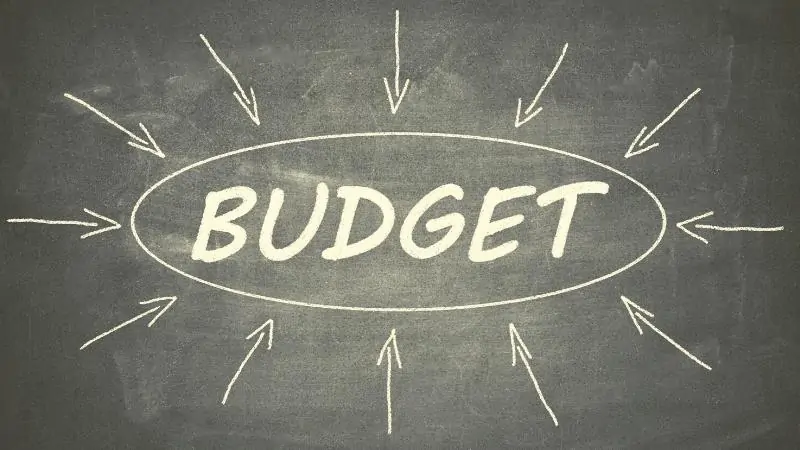Life changes can significantly impact your finances, making it important to regularly review and adjust your financial plan. Whether it’s a major milestone or a small shift, revisiting your budget ensures you stay aligned with your financial goals and navigate transitions smoothly. As your circumstances evolve, your spending habits may need to adjust as well.
Budgeting is an ongoing process, not a one-time task. By continuously assessing and adapting your financial strategy, you can avoid shortfalls and take advantage of new opportunities. In this post, we’ll explore life changes that may require a budget review and offer tips for adapting your financial plan effectively.
The impact of major life events on your budget

Major life events can greatly impact your finances, bringing both new opportunities and financial obligations. It’s crucial to recognize these changes and adjust your budget to manage them effectively.
Understanding the financial implications of milestones allows you to modify your spending and saving strategies. For example, getting married involves combining incomes and expenses, which requires reevaluating joint financial goals.
Starting a family introduces costs like childcare and education savings. Regularly updating your budget ensures you can accommodate these changes without compromising your financial health.
Other significant events, such as buying a home, starting a new job, or retiring, also present unique challenges and opportunities. A new job might change your salary or benefits, affecting your disposable income, while retirement often means transitioning from a steady income to relying on savings. Updating your budget will help align your finances with these new circumstances.
Navigating career changes
Changing jobs or careers is a common reason to revisit your budget. A new job may bring changes in salary, benefits, and work-related expenses, all of which can impact your financial plan. Take time to evaluate how your income, benefits, and expenses will shift with the new role.
If you earn more, consider using the extra income to boost savings or pay down debt. If you earn less, focus on finding cost-cutting measures that don’t compromise your quality of life. Additionally, include new benefits like retirement contributions or health insurance in your budget.
Job changes aren’t the only career events that require a budget review. Starting a business, freelancing, or taking a career break can also affect your financial priorities. Regularly updating your budget ensures your financial plan stays aligned with your new income and spending needs.
Family changes and your finances
Family changes can have a significant impact on your finances, altering both your spending and saving priorities. Whether welcoming a new family member or navigating unexpected events, it’s important to reassess your budget to accommodate these changes.
For new parents, budgeting for expenses like diapers, medical costs, and childcare is essential. Similarly, caring for an aging parent may require setting aside funds for healthcare or assisted living. Each family-related scenario brings unique financial obligations, highlighting the need for regular budget reviews.
Family changes can also present financial opportunities. Paying off a child’s student loans or downsizing your home after they move out can free up capital. Reviewing your financial plan during these times ensures you’re prepared for both new challenges and opportunities.
Adapting to lifestyle shifts
Lifestyle changes, whether voluntary or circumstantial, often require a reassessment of your financial priorities. Adjusting your budget to accommodate these shifts is essential for maintaining financial stability and supporting long-term health.
For example, moving to a new city can impact your cost of living, from rent to transportation. Such changes offer an opportunity to reevaluate your spending and allocate resources where they are most needed. Even smaller adjustments, like adopting a healthier lifestyle or taking up a new hobby, can also affect your finances.
Your budget should reflect your current lifestyle and help you achieve personal goals without compromising financial stability. Regularly reviewing and adjusting your budget as your lifestyle evolves ensures your finances align with your needs and aspirations.
Preparing for unexpected events
Life is unpredictable, and unexpected events can strain your finances. Whether it’s a medical emergency or job loss, having a flexible budget is essential. An emergency fund is crucial for financial preparedness.
Ensure your budget allocates resources to build and maintain it, providing a safety net when surprises arise. Regularly reviewing your budget helps strengthen your financial resilience, allowing you to adjust and safeguard your security in the face of life’s disruptions.
Seizing new opportunities
Not all life changes are challenges—some, like receiving a windfall or a bonus, can positively impact your finances. Reviewing your budget ensures you make the most of these opportunities while staying aligned with long-term goals.
When you receive a financial boost, consider how it fits into your overall strategy. You might use it to pay off debt, invest in retirement, or save for future goals. Each decision should align with your financial priorities.
Investment opportunities should also align with your risk tolerance and financial goals. Regularly reviewing your budget helps balance seizing opportunities with maintaining financial security, setting you up to embrace positive changes confidently.


